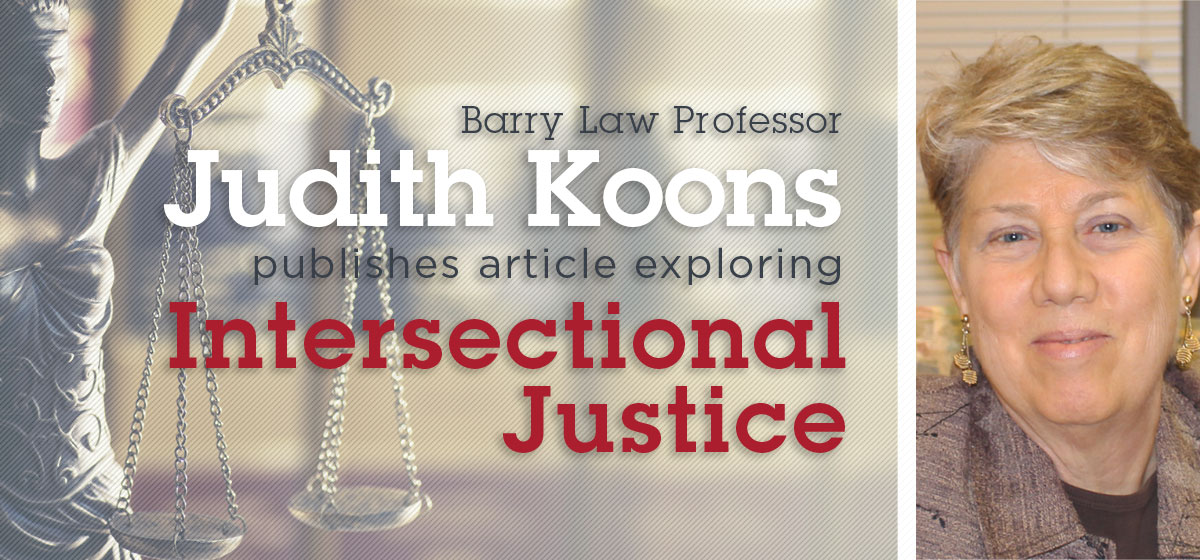An article by Judith Koons, Professor at Barry University School of Law, about the Pulse shooting will be published in an upcoming issue of The Scholar: St. Mary’s Law Review on Race and Social Justice and has been featured in an interview by Scholastica.
“Our community, as well as the nation, was shaken to its core by the massacre," Koons said. She argued that the root of this type of violence lies in the combined effect of internalized homophobia and racial hatred in a context of cultural systems of oppression of outsider groups. But Koons proposes, “Just as forms of oppression are intersectional, so are forms of justice. Racial justice is connected to and animates gender justice. A single axis approach to justice is insufficient. No member of a subordinated group can be free if our gay and Latinx brothers and sisters are not free. Consequently, the importance of connecting LGBTQ liberation with racial justice cannot be overstated.”
Koons said that seeing the Pulse massacre coverage on the news, hearing the stories of those who were injured and seeing the faces of the 49 who were murdered – compelled her to help in the healing process.
“This article is my contribution toward that effort,” Koons said.
In her article, “Finding Meaning in a Massacre Through Gay Latinx Intersectional Justice,” Koons recommended engaging several legal and political remedies to orient toward intersectional justice. First, she argued, a clear national policy should be set by Congress of nondiscrimination against members of the LGBTQ community in all of the protected civil rights areas.
“Second, state legislatures should reject the several hundred pieces of anti-gay legislation that arose in the backlash to marriage equality. Third, Florida and other states should include the LGBTQ community in the states’ Civil Rights Acts without demeaning bathroom provisions that target transgender people or religious exemptions that are a cover for discrimination,” Koons said.
In addition, Koons maintained that the nation should spurn immigration and other policies that incite hate crimes against immigrants and other vulnerable groups. Finally, she contended the US should be a respectful partner to our territories and countries with whom we share borders.
“This is required not only by intersectional justice, but also by the demands of an interconnected world,” Koons stated.
The Barry Law community, more specifically our future lawyers, can learn from potential systemic failures of intersectional justice, she noted.
“The massacre of members of the LGBTQ and Latino communities illustrates the importance of facing and dismantling divisions in society that have been constructed out of fear and misunderstanding. For the Barry community, one approach is reflected in the law school’s mission, which embraces faith and social justice in an inclusive community,” said Koons.
Koons detailed that healing from the massacre and redressing systemic injustice require the spirituality to ask difficult questions and look for greater meaning, a commitment to live and work in ways that foster respect and equality, and a willingness to treat others as neighbors in our heterogenous public.
“The written word potentially has great power, reach, and longevity. Regardless of how the article is received, my job was simply to set it adrift on the tide of public discourse with the hope that it brings a positive message to those that it touches,” Koons concluded.

